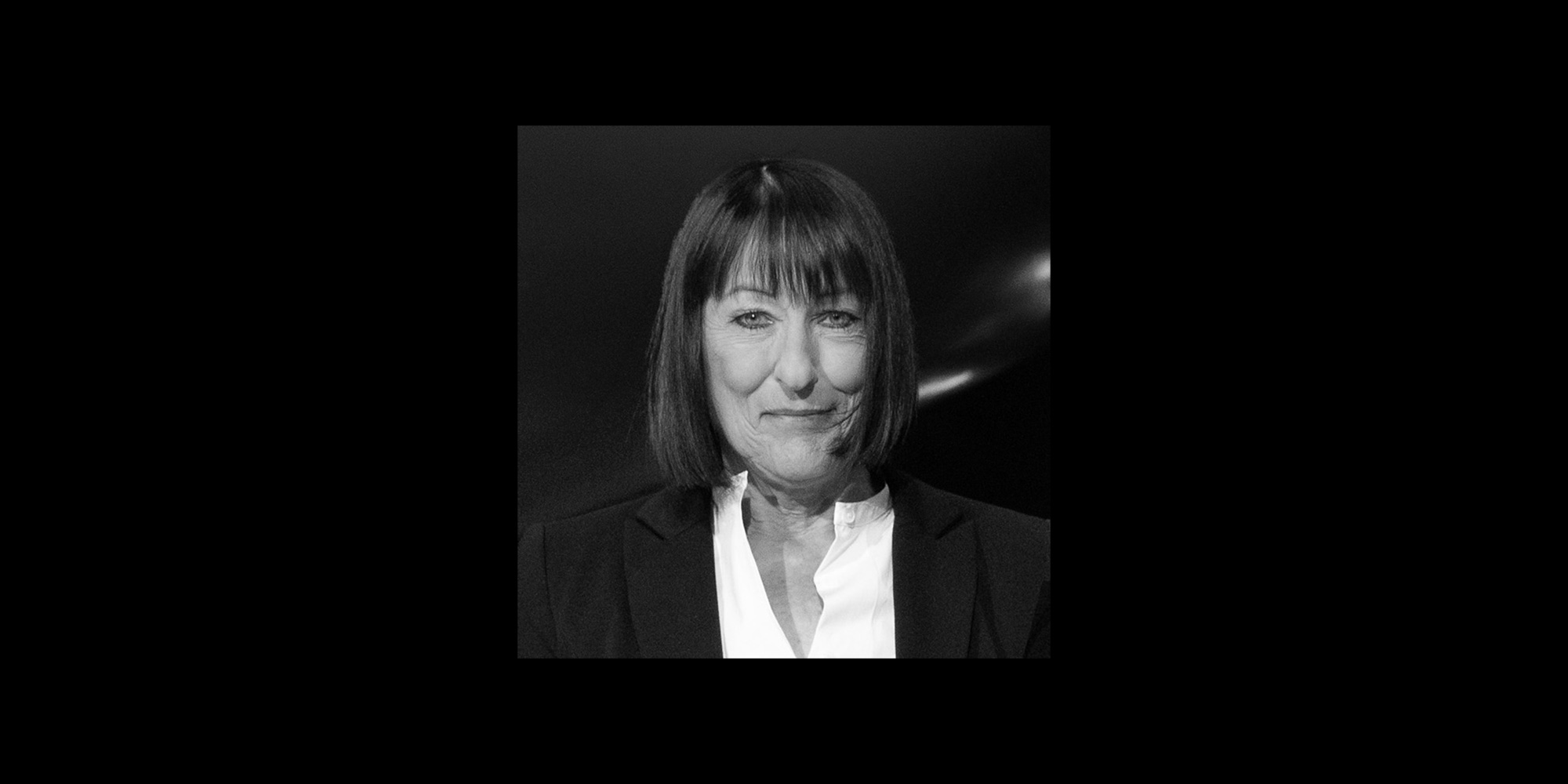It is with great sadness that we bid farewell to Christine Schöpf—a formative figure in media art and for all of us, without whom Ars Electronica would not be what it is today.
“Every idea, every project needs its supporters, needs people who stand for visions, and those who know how to get excited about these visions; in some cases, it needs fighters with a dash of guerrilla mentality and, ultimately, it needs a degree of tenacity and persuasiveness.”
Christine Schöpf in “1979-2004. Ars Electronica. 25 Years of Network for Art, Technology, and Society”
Ars Electronica would not be what it is today without Christine Schöpf. She covered the first festival of art, technology, and society in 1979 as a journalist and helped organize subsequent festivals. In 1987, she played a leading role in conceiving the Prix Ars Electronica, which she produced until 2004. In 1996, she helped Hannes Leopoldseder initiate the Ars Electronica Center and the Ars Electronica Futurelab. From 1996 to 2020, she and Gerfried Stocker served as the artistic directors of the Ars Electronica Festival. Christine Schöpf helped shape the development of Ars Electronica, fought for it, and was jointly responsible for its success. Christine Schöpf passed away on Friday, October 24. She was 77 years old.
After graduating from school, Christine Schöpf wants to become a theater director. Her mother is less than enthusiastic about this, trying to convince her to pursue a different path. She succeeds. Her daughter moves to Vienna and begins studying German and Romance languages in order to become a teacher. However, after attending classes at a high school, Christine Schöpf realizes that she will “never, ever” become a teacher. While waiting for the results of her dissertation on Johann Nepomuk Nestroy, she applies to ORF Upper Austria. She sends a series of proposals for one-hour radio features on social issues. The regional director at the time finds these proposals interesting and wants to meet their author. This is the first encounter between Christine Schöpf and Hannes Leopoldseder (director of ORF Upper Austria in Linz from 1974 to 1998, ORF information director in Vienna from 1989 to 2002). Instead of producing long features, Christine begins working as a freelancer on a weekly ORF radio culture magazine in 1977. A year later, in 1978, she starts as an editor for the news service, and in 1982 she becomes head of the culture and science department, a position she holds until her retirement in 2007. In retrospect, she says that she only “slid” into journalism, because she was simply interested in it.

Christine Schöpf’s enthusiasm for art and interest in current issues inspire her to take action outside of ORF. In doing so, it’s not primarily beauty that Christine Schöpf values in art. She is interested in art that addresses exciting topics and stimulates thought—art that aims to be relevant. This is particularly evident in the Prix Ars Electronica, which she initiates in 1987 – even though she is not initially convinced that the prize, which would come with a one-million-schilling endowment, is a good idea. However, she ultimately decides to take on the task. She conceives a completely new type of international competition, which is announced in three categories, and in just a few years, it establishes itself as the most prestigious media art prize in the world.
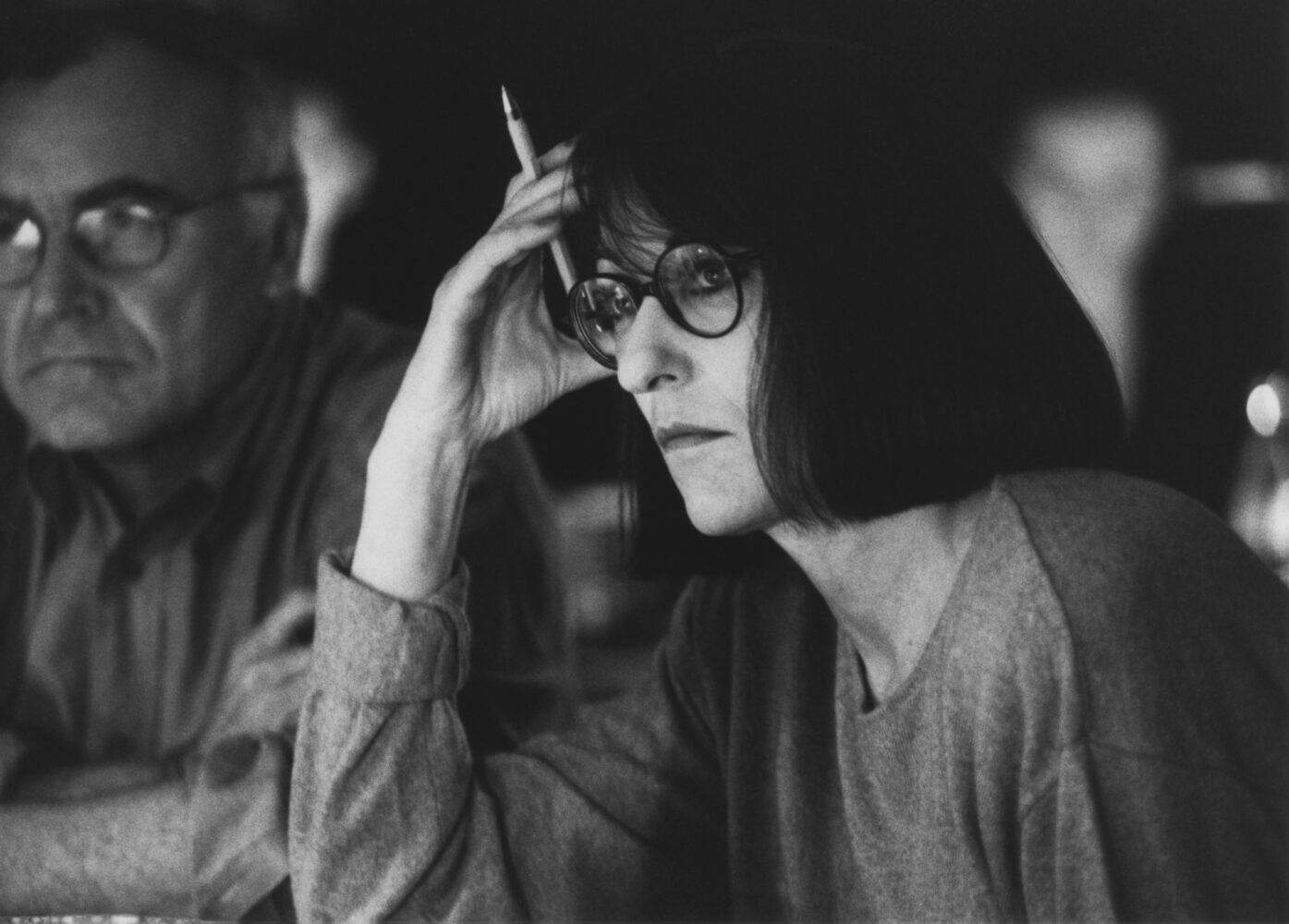
In 1996, Christine Schöpf writes another chapter in the success story of Ars Electronica. “The next step was undoubtedly when Gerfried Stocker arrived and the Ars Electronica Center was built. This brought new programs that appealed to young people.” In retrospect, the success of this project seems inevitable, but in the mid-1990s, that’s far from certain. This is particularly evident in the efforts to establish the Ars Electronica Futurelab, initiated at the same time to develop the museum’s content and installations. Schöpf recalls, “At the time, we held endless meetings to discuss the new Ars Electronica Center. I always insisted that there had to be a workshop and a research facility, otherwise the whole thing would come to a standstill.”
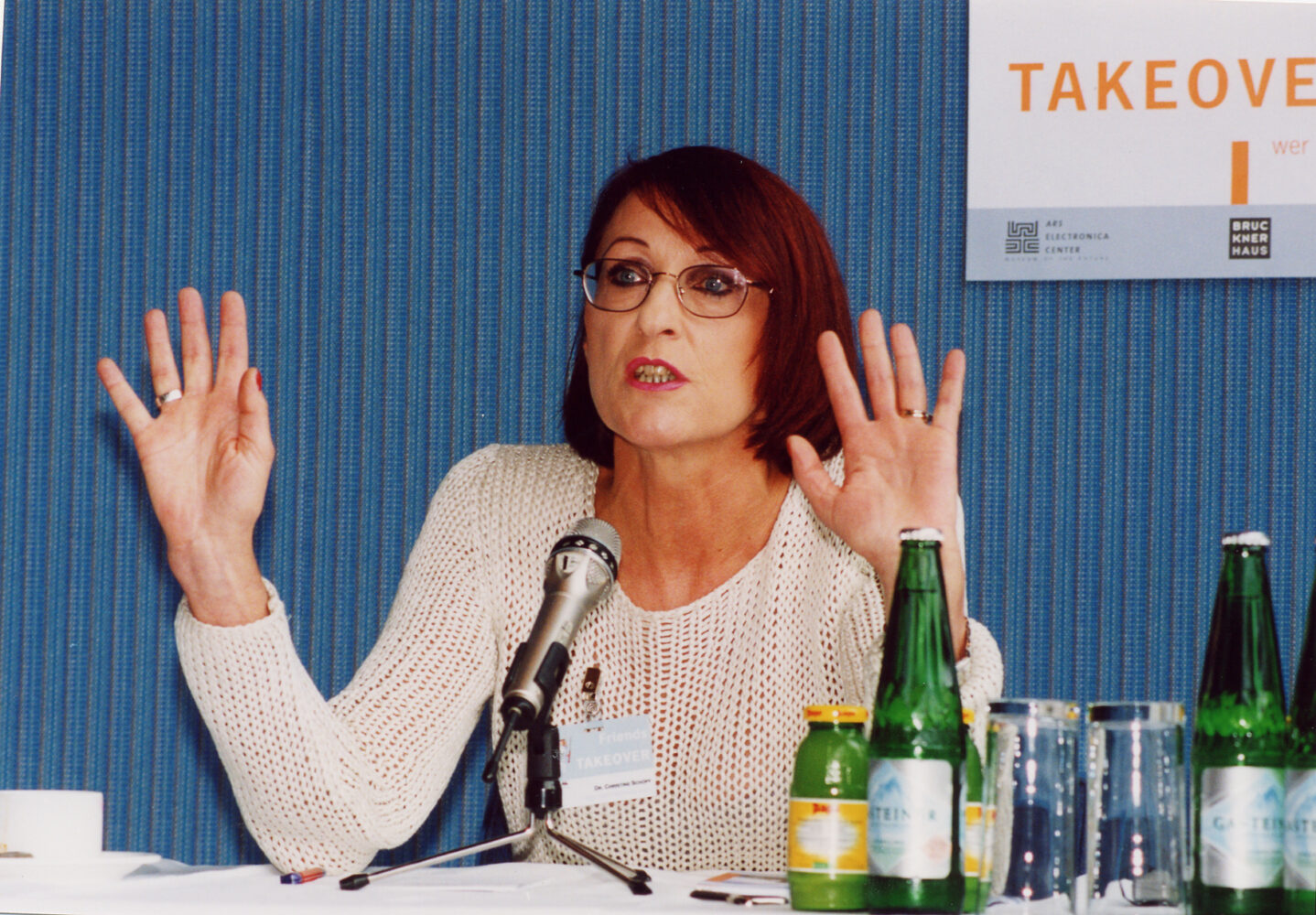
From 1996 onward, she and Gerfried Stocker, who is just 32 years old at the time, form the artistic direction of the Ars Electronica Festival. Together, they develop the themes and program for the Linz event, which is becoming the world’s leading event for art, technology, and society.
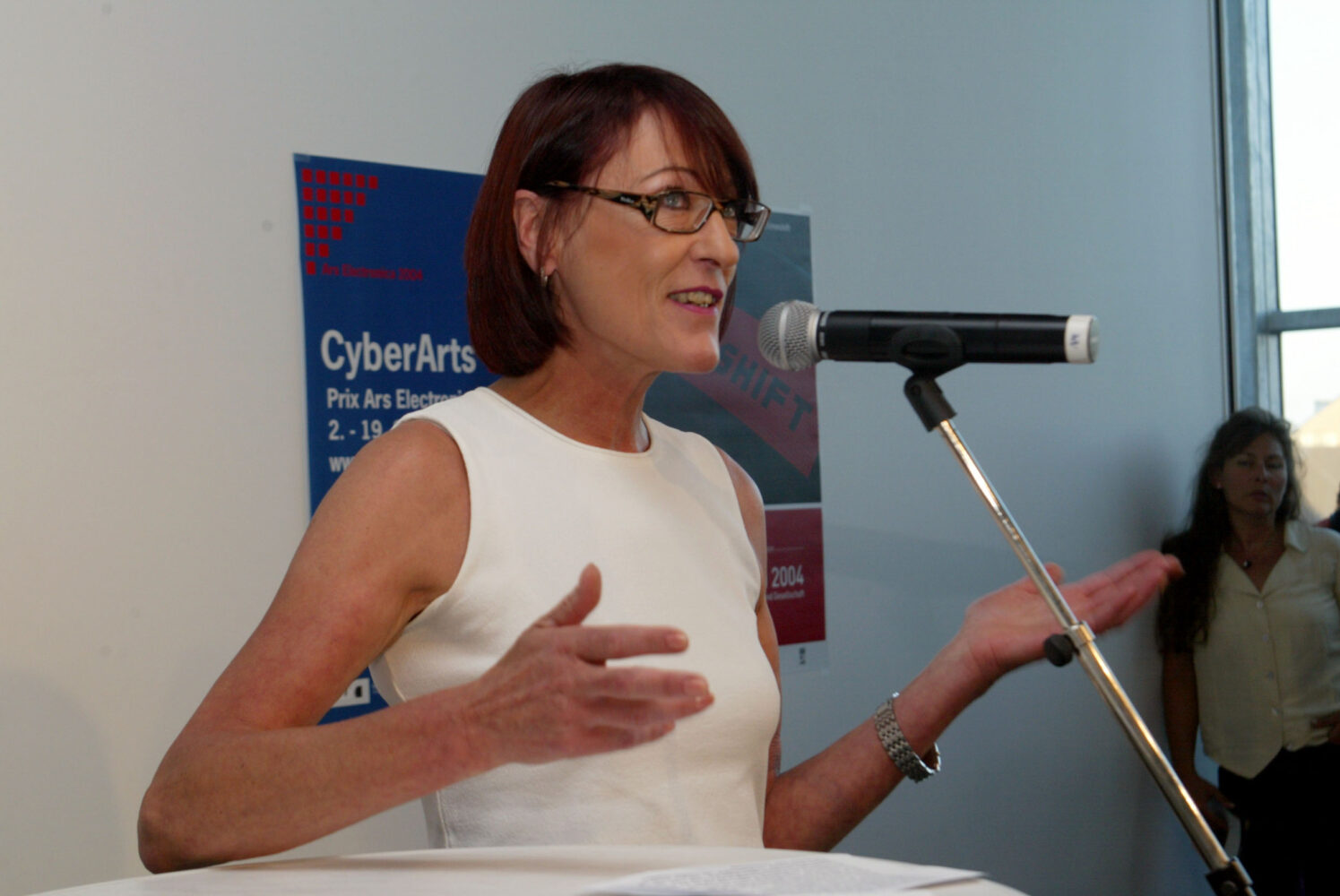
In 2008, Christine Schöpf receives the Grand Gold Medal of Honor from the city of Linz and the Culture Medal from the province of Upper Austria. In 2009, she is appointed an honorary professor at the University of Arts in Linz. In 2018, she is awarded the Austrian Cross of Honor for Science and Art.
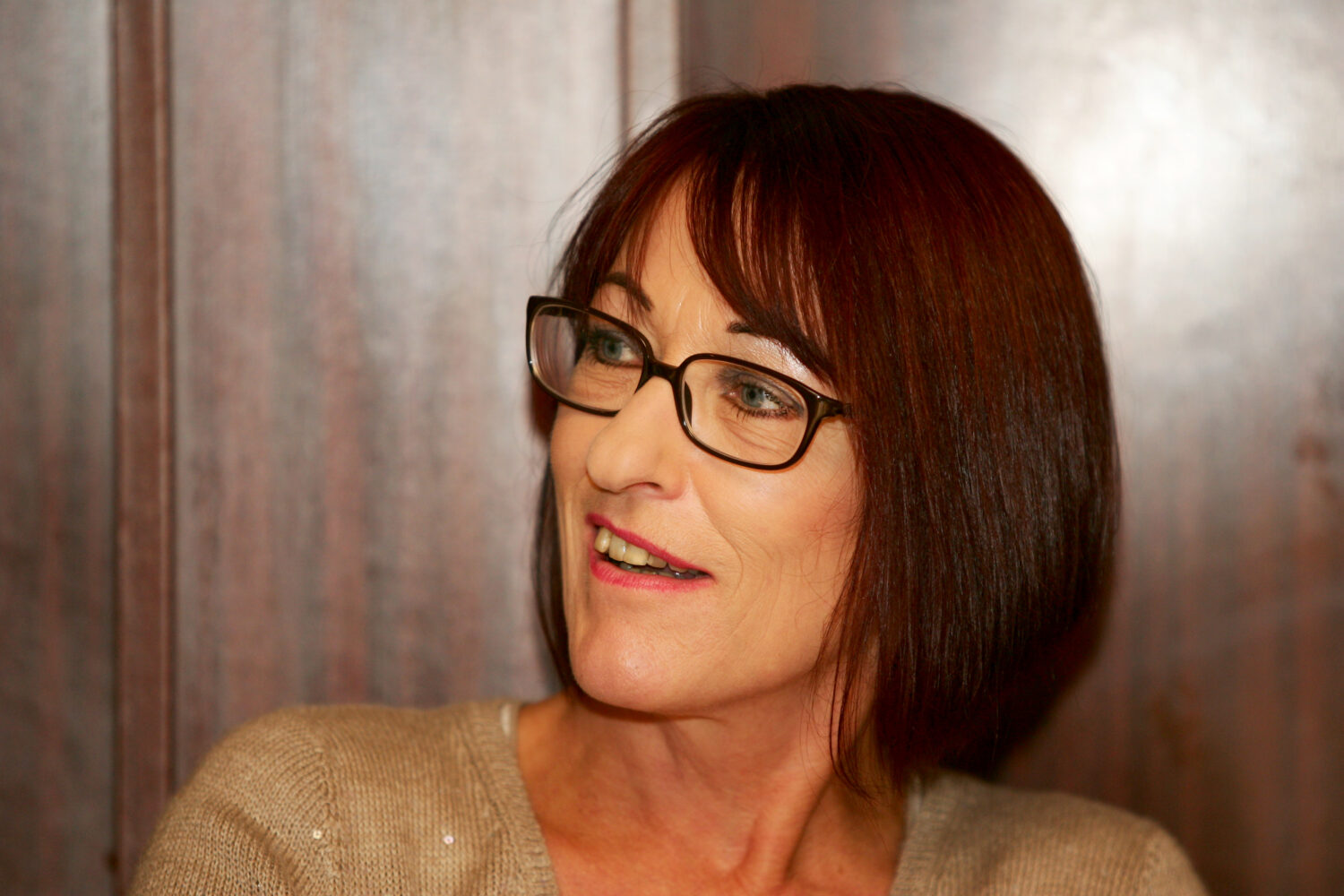
Around four decades after participating in the very first Ars Electronica, Christine Schöpf is stepping down from her official roles in 2020. In a lengthy interview published on the Ars Electronica blog, we ask her what advice she would give her younger self. “Always keep your eyes and ears open and stay curious! And persevere!”
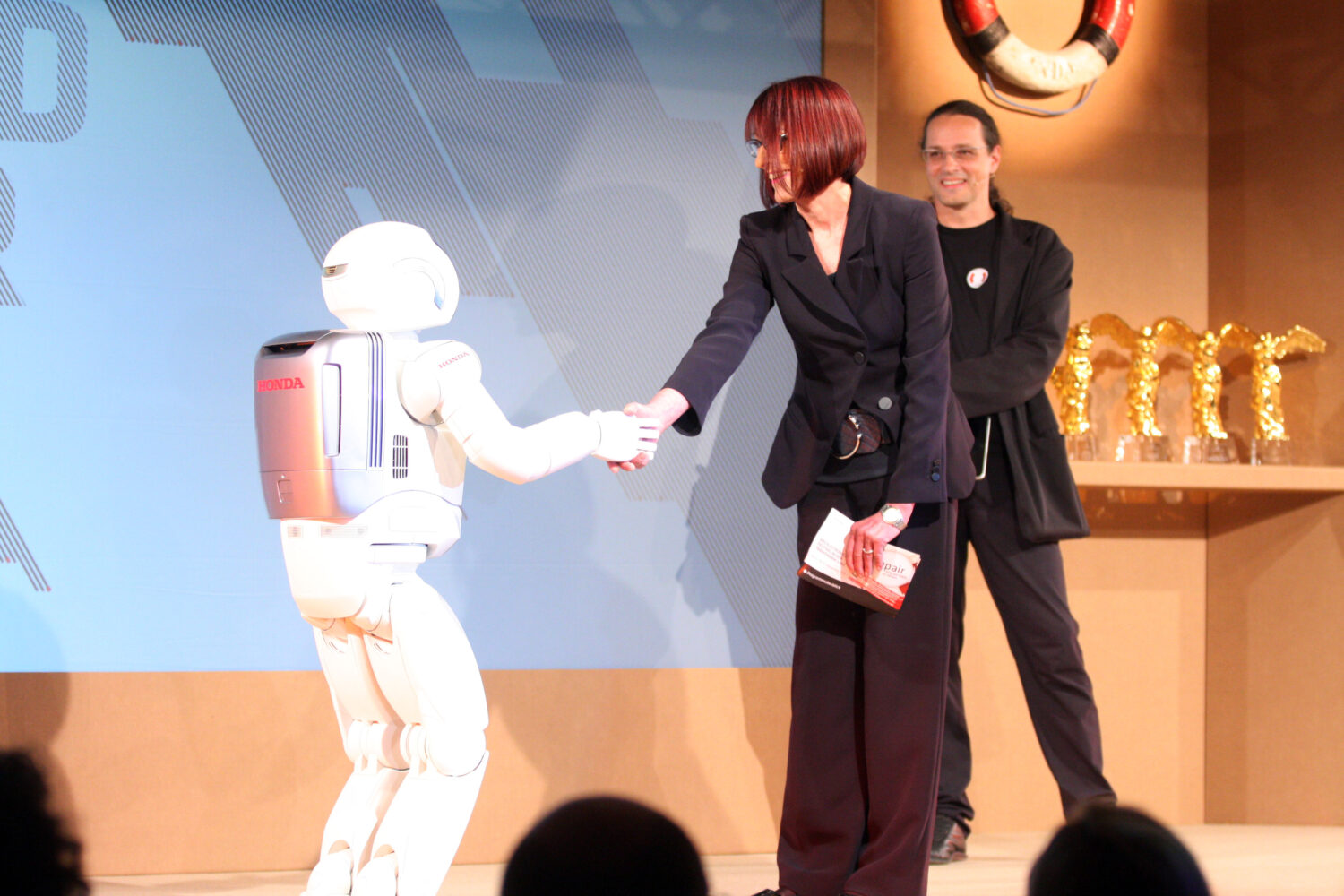
In 2022, she says in an interview that she is “grateful” when she looks back. “I have been able to accomplish so much in my professional life and make a difference.” She has always enjoyed her work. “And that is a privilege.”
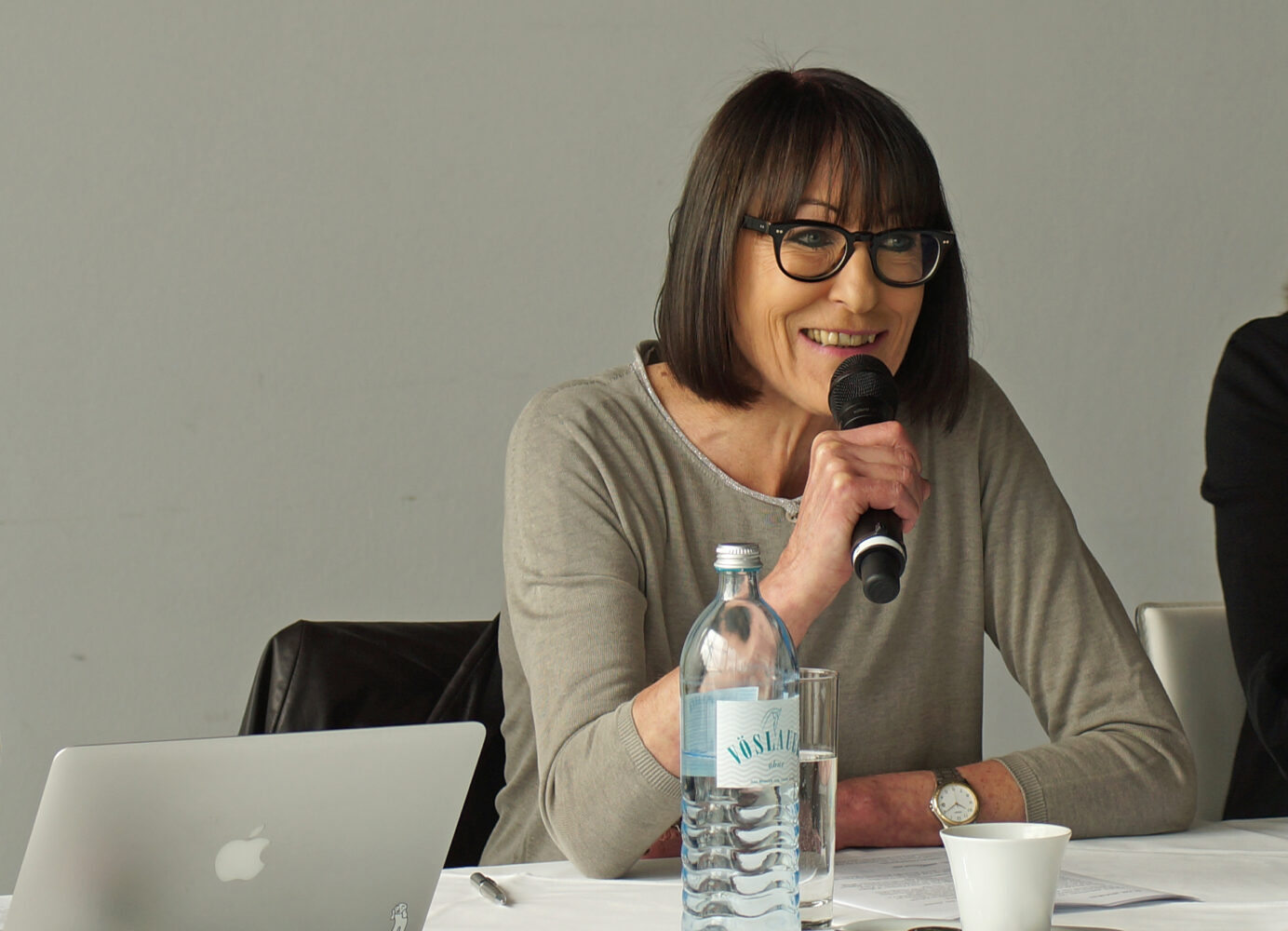
With Christine Schöpf’s passing, we lose a fighter who worked tirelessly for Ars Electronica and media art. We lose a discussion partner who never held back her opinion, yet always treated others with respect and appreciation. We also lose a visionary who was open to new ideas and unwaveringly believed that we can shape a better future.
We will miss you, Christine.
